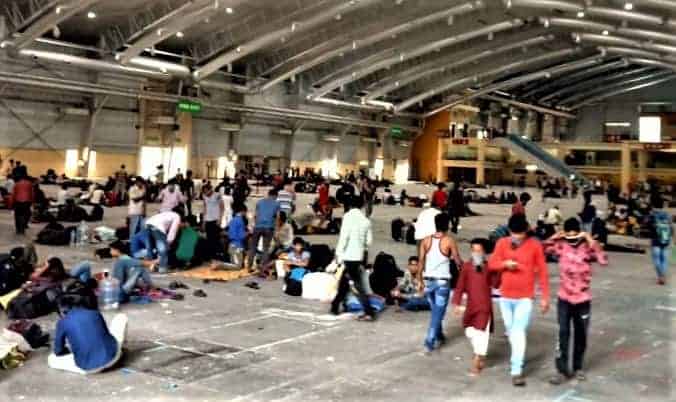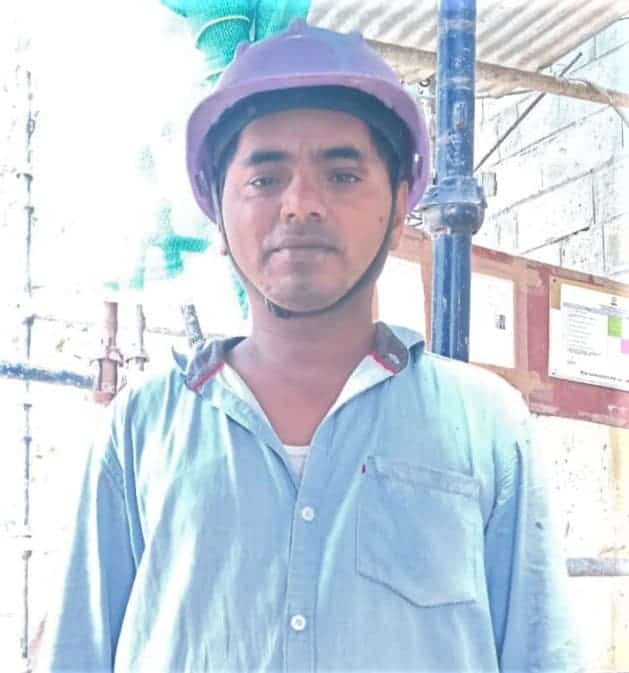
Although construction activity in Bengaluru got a go-ahead, Ramachandra returned to his family in Bihar during that brief window when the government ran trains for migrant workers. He had started work at a construction site six months ago. His new home was in a labour camp in Ulsoor, with 400 other workers.
Though he had worked through March, he was not paid. The contractor said the builder had not paid him. Then, he stopped answering phone calls. Thankfully, he transferred Rs 500 to Ramachandra’s account every Sunday, towards food expenses during the lockdown.
The money was enough to survive. “But I wasn’t able to send money to my family. I thought, if I’m not being paid for the work I did, and if work won’t be available anytime soon, why should I stay back?” Ramachandra reasoned.
Forced to Stay
Rajiv Kumar, another construction worker, went home to Purnia in Bihar at the first opportunity. He, however, was forced to leave his brother Ranjan behind, almost as surety for not paying two months’ rent of Rs 10,000. Ranjan was eager to stay back, find work and send money home.
Unlike Ramachandra, the brothers got nothing from their boss, a small, independent contractor for whom they had worked for five years. They had no savings or food, having sent most of their earnings to their family that comprised of grandparents, father, Rajiv’s wife and child.The lockdown had been so sudden, they were caught unawares.
“The contractor went back to his hometown. When I called him, he simply said that he can’t help us,” says Rajiv. In the one-and-a-half months of lockdown, he got rations from the BBMP just once, that too after Senthil S, a Corona Volunteer, got the local BBMP official to survey the area. When he approached the officer a second time, he received abuse and was told to approach his contractor. “Senthil Sir gave us rations and some money, else we wouldn’t have survived,” says Rajiv.

My brother Ranjan has stayed back in Bengaluru as our landlord demanded that we pay him two months’ rent of Rs 10,000 once the lockdown is lifted and we start working. Ranjan is waiting for our contractor to return and pay him Rs 6,000 in pending wages – Rajiv Kumar
A Human Touch
Bhuvilal Mahato is an exception. He decided to stay back and has already resumed work. During the lockdown, with the Rs 1000 his contractor paid him every week, Bhuvilal kept Rs 500 for his expenses and sent the rest to his family – wife and three kids – in Bihar. It was only a fifth of his wage of Rs 20,000 a month, but he has no complaints. “Though there’s been some financial crunch, my family has been ok during lockdown,” he says.

The contactor, Anil Kumar, has already paid Bhuvilal (in pic) and other workers an advance of Rs 4,000 for May. “I’ve already sent this money home. I don’t need to go home as there’s work now.” the foreman who supervises 33 workers, says. What’s more, he also contacted the Hunger Helpline and got cooked food delivered to his labour camp.
Here’s what worked in the case of Bhuvilal:
- A thoughtful employer
- Minimal payment, but which allowed him to send some money home
- Cooked meals from the government, ration kits
- Advance payment for the month of May
Anil the contractor, who also hails from Bihar, is short of labourers now. “Work has started, but 75% of my workers are not back on the site yet. They want to go back home. I don’t stop them; I know they will return once trains start as they won’t have work in their villages.”
Anil appears to understand what the government failed to grasp when it cancelled the trains to ferry migrant workers back to their home-States. For, Ramachandra plans to return to Bengaluru and start work soon. Rajiv, though upset with his previous contractor, says he may have no option but return. He plans to find a new employer though.
[In Part 2 of this series, we look what stopped builders and the government from rushing to the aid of construction workers.]
A tale of mismanagement.